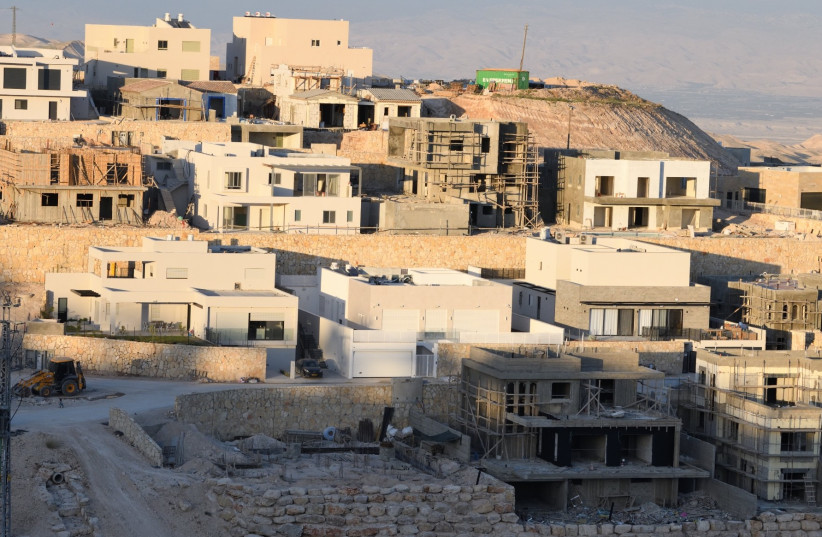A bill to allow the expansion of the town acceptance committee law to larger communities and settlements in the West Bank was passed in a preliminary reading in the Knesset plenum on Wednesday.
The amendment to the 2011 law that allows towns to screen aspiring residents passed with 39 Knesset members in favor of the proposal and 15 against it. The bill will be returned to the Ministerial Legislative Committee for further preparation before the second and third Knesset readings.
"Happy that my bill, to significantly increase the applicability of acceptance [committees] to town from 400 families to 1,000 passed in the preliminary reading," said Otzma Yehudit MK Yitzhak Kreuzer, who submitted the private bill. "We made a commitment – and we delivered. We'll continue to put the periphery in the center, we'll develop and strengthen the settlement in the Negev and the Galilee."
While the previous bill applied only to the Negev and the Galilee, Kreuzer's January bill also included towns in Emek Iron, South Hebron Hills, Lachish, and Adullam regions.
The bill's explanatory notes explain that the goal of the expansion of the acceptance committee institution is to decentralize the population and enable periphery residents a mechanism to protect the communal or rural cultural cohesion of kibbutzim, moshavim, and other towns.
According to the law, it allows community settlements to check the suitability of residence candidates to ensure that they fit into the social fabric and structure of the town. The law does not allow the rejection of candidates based on "race, religion, gender, nationality, disability, class, age, parentage, sexual orientation, country of origin, views or party political affiliation."
"The bill comes directly from the manual for authoritarian regimes that deny the human rights of minorities, and practice the divide and rule method between population groups."
Zulat Institute
Does this law allow Israeli towns to discriminate against would-be residents?
Critics, however, contend that the subjective requirement that one must fit into a town's social fabric tacitly allows for discrimination across the very same characteristics it allows.
"The law that the government is seeking to extend its applicability was intended from the outset to permit racial and illegal segregation, and the proposed amendment removes the mask that has so far prevented its disqualification at the High Court of Justice," the Adalah Legal Center for Arab Minority Rights in Israel said on Wednesday. "The amendment aspires to allow as many towns as possible to prevent Arabs from living in them."
Adalah claimed that the government was developing "racist principles" enshrined in the Nation-State Law and through the law was applying Israeli law to the disputed territories in contradiction with international law.
The Zulat Institute for Equality and Human Rights said in response to the bill's advance by accusing the Knesset of enacting Kahanist laws.
"This is a proposal that is in complete opposition to the principle of equality and the international obligations of the State of Israel," the institute said in a statement. "The bill comes directly from the manual for authoritarian regimes that deny the human rights of minorities, and practice the divide and rule method between population groups."
On Tuesday, Zulat argued that the "community characteristics" that were being protected were purity of race.

